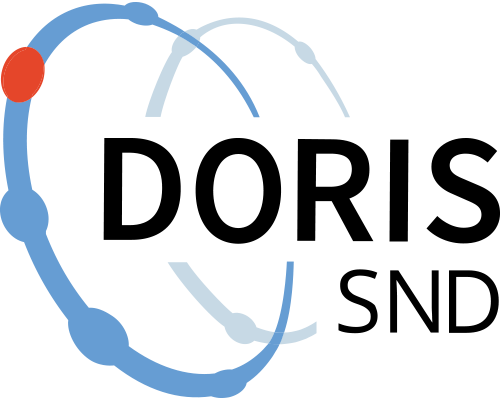Funerary practices in the 1990s
https://doi.org/10.5878/001551
Already at the planning stage of the “Funerary Practices – A Study of Social Differences after Death” project, the fundamental idea was that the main data for the study would be provided by a broad survey of the large majority of all Church of Sweden funerals. It is well-known that the weakening of Christian customs related to service attendance and the use of other Christian practices (baptism, confirmation, and church weddings) is less pronounced when it comes to church funerals.
The ritual form of the church funeral is largely defined through the order of service for funerals in Den svenska kyrkohandboken [approx. The Swedish Church Manual]. However, for several points in the service, the handbook offers alternative forms and the possibility of leaving them out, and the final part of the service mainly depends on whether there will be an earth burial or a cremation. There is hardly any information from previous studies regarding the formulation of the funeral service, and there is no individual information about what happens to the coffin with the deceased after the service.
These facts alone are enough to warrant a study of funerary practices and their variations. The section on funerals in the church manual, which defines the ritual framework for funeral services, begins by observing that the funeral is part of a situation extending from the deathbed to the final leave-taking by the grave. A similar view informed the idea of a broad study of contemporary funerary practices in Sweden: not only - or mainly – would the study focus on the rituals of the church or chapel; it would also examine what goes on before and, to some extent, after the funeral service to the largest possible extent. Above all, it would address the social aspects (broadly interpreted) of funerals not regulated by the church manual or otherwise governed by established regulations.
The raw data for the study is available from LUKA, the Church History Archive of Lund University.
Purpose:
During the second and third quarter of 1997 were an extensive survey material concerning funerals collected at the Department of Theology at University of Lund. The collection was part of a research project on "Funeral Customs - the study of social differences after death" conducted with funding from the Social Science Research Council (SFR). The survey forms provide information on many matters concerning funeral customs of modern Sweden. The questions sought to capture both the social events surrounding the funerals as well as the ritual events of the funeral church services.
The dataset is comprised of an SPSS file, containing coded answers to the study's questionnaire.
Documentation files
Documentation files
Citation and access
Citation and access
Data access level:
Creator/Principal investigator(s):
- Göran Gustafsson - Lund University - Department of Theology
Research principal:
Data contains personal data:
No
Citation:
Language:
Method and outcome
Method and outcome
Data collection - Self-administered questionnaire: Paper
Data collection - Self-administered questionnaire: Paper
Geographic coverage
Geographic coverage
Administrative information
Administrative information
Topic and keywords
Topic and keywords
Publications
Publications
Versions
Versions
Metadata
Metadata
Versions
Versions
